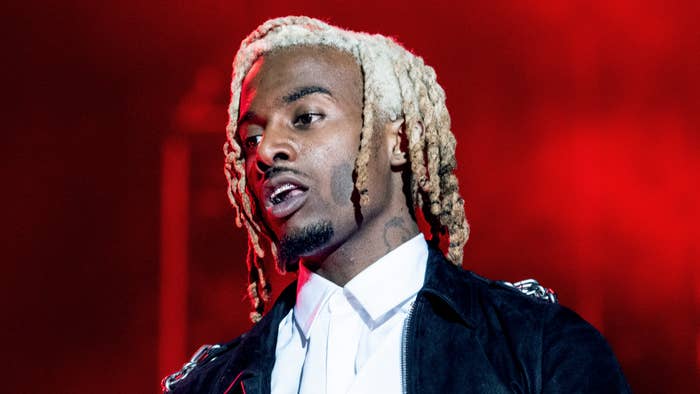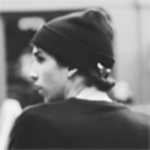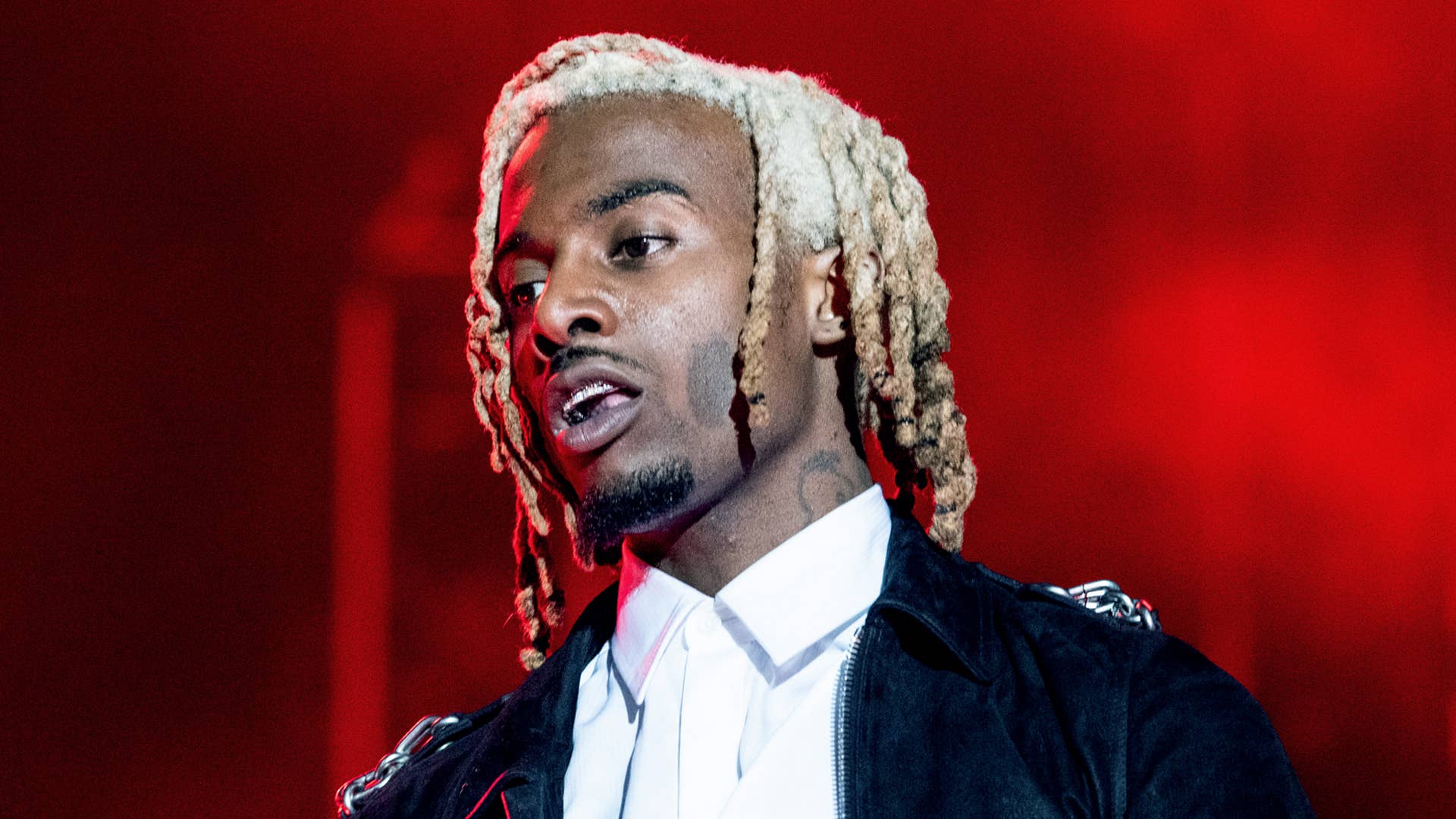
Playboi Carti is the most musically polarizing rapper on the planet right now.
Artists like Kanye West and Tekashi 6ix9ine might be more divisive pop culture figures overall, but when it comes to the actual music, no one’s polarized fans more than Carti has in the past couple of years.
The 24-year-old Atlanta rapper stays off social media (“I always let my phone die,” he often remarks in interviews), and he rarely says anything outlandish enough to end up in headlines on gossip sites. Still, everyone has strong opinions about the way he makes music. Since emerging on SoundCloud with songs like “YUNGXANHOE” and “Broke Boi” in the mid-2010s, he has defied the traditional conventions of rap music in a way that pisses off hip-hop purists with as much intensity as it excites anyone in search of something new. Carti has assumed the role of rap’s latest disruptive lightning rod, sparking conversations about how the genre should (and shouldn’t) evolve next.
Playboi Carti was born on the exact same day that Tupac Shakur died, a piece of trivia that fits so well with the storyline of his career that it almost sounds made up. His music, which reimagines the traditional role of a rapper, sounds nothing like the songs from hip-hop’s Golden Age. Instead of focusing on writing intricate lyrics or establishing a commanding mic presence, Carti uses his voice as an accent mark on each beat he encounters, leaning on repeated refrains and off-the-wall ad-libs to propel his songs forward. In the process, he has flipped the typical relationship between a rapper and a producer on its head. Carti likes to let producers take the lead, figuring out ways to rap inside beats instead of overpowering them. He acts as a conductor, using his voice as a means of orchestrating energy flow rather than delivering overcomplicated lyrics. For Carti, the meaning of each word matters much less than the feeling it communicates.
Sometimes he doesn’t even bother to pronounce words at all. A few years ago, Carti started playing around with squealing “beeeee!” sound effects that he’d pepper into the tapestry of each song. Later, he merged these high-pitched sounds with half-enunciated words for a vocal style that can only really be described as a “baby voice.” And with that, Baby Voice Carti was born. He experimented with it off and on for months, before it really took shape on 2018’s Die Lit standout, “FlatBed Freestyle.” In the outro of the song, he repeats the phrases, “one more pint” and “too much lean,” over and over, but it sounds more like “wuuuunmurpyn, toooomaleen.” The baby voice continued to evolve on leaks like “Cancun” (now famous for the “my stummy hurt” line), and Carti even snuck it into unexpected places, like Solange’s critically acclaimed 2019 album, When I Get Home. By 2020, he’s pushed the sound so far that it’s even started to divide his own core fans, who had mixed reactions to his baby-voice-heavy releases “@ MEH” and “Pain 1993” with Drake.
In the past few years, Carti has picked up the experimental rap torch from artists like Young Thug and run with it in his own direction. Thug inspired a whole era of rappers to prioritize eccentric melodies and innovative vocal deliveries, but Carti took a sharper left turn than any of his peers. The baby voice in particular is a step no one else thought to take, and according to people who have heard the unreleased music he’s working on now, Carti is pushing his sound into even stranger places. “When he starts to play me music, it quickly becomes clear that he’s entered into new vocal territory,” wrote Ben Dandridge-Lemco in a 2019 Fader cover story. “The baby voice is still present on multiple songs, but he’s warped it into a higher pitch, stretching his voice into something much more unorthodox.”
Carti’s unique approach to music has split listeners into two camps with equally passionate perspectives about what he symbolizes in rap.
On one side, there’s a rabid fanbase of (mostly young) supporters who have become so feverish for new music from Carti that they’ve taken to the dark corners of the internet, leaking dozens of songs. In the summer of 2019, fans even snuck an unofficial upload of an unreleased track called “Kid Cudi / Pissy Pamper” onto Spotify, and it immediately went No. 1 on the US Viral 50 chart, becoming one of the most talked-about songs of the year.
The thirst for a new Playboi Carti album hit a new level this fall. After Carti repeatedly teased the imminent release of his second studio album, Whole Lotta Red, without delivering the goods, a new artist named Mario Judah—recently famous for his viral rap-rock song “Die Very Rough”—took it upon himself to pressure Carti into finally dropping the project. Screaming into his phone every day and demanding a release date, Judah eventually warned he would “drop Whole Lotta Red for him.” Then, on Dec. 12, Judah did exactly that, releasing a four-song EP that sounds hilariously similar to Carti’s music, complete with high-energy ad-libs and a baby voice flow.
“Before I blew up... I was one of the fans in his comments section,” Judah told Complex in mid-December. “I was like, ‘Bro, drop Whole Lotta Red!’ And I used to always think, ‘What could possibly be done to get this man to drop his album? We all want it. We all love it.’ But I’m just another fan in his comment section. He’s not going to see my comment. He’s a rockstar. So I just figured, now that I’ve got this platform and people know who I am, it’ll get around to where it needs to get around to.”
On the flip side is a (mostly older) subset of listeners who are completely baffled by the appeal of a rapper who stretches words beyond comprehension. Recontextualizing the genre they fell in love with into something they barely recognize, Carti represents an unwanted evolution. With each exaggerated ad-lib and half-enunciated verse, the narrative that “rap isn’t as good as it used to be” is further drilled into their brains.
This push and pull is exactly what makes an artist like Playboi Carti so important. Since 2017, hip-hop has been the most popular genre in the United States. Decades removed from its inception, rap is no longer an upstart artform that exists at the fringes of pop culture. As it has evolved, the genre’s sound has broadened to incorporate more melody, lending itself to a wider, more mainstream audience. But to retain the edge and excitement that energized rap in the first place, the genre needs artists like Carti, who dare to experiment and push it in new directions. Especially in a streaming ecosystem that often rewards homogeneous music that can slide into playlists without disrupting flow, hip-hop needs outliers like Carti, who can throw a wrench in the system and break up monotony.
For decades, hip-hop purists have celebrated rappers who figure out new ways to say things. But it’s also important for someone like Playboi Carti to come along and rethink how to say them. “I like new sounds,” he explained to The Fader. “It’s gotta be something I’ve never heard before. Every day I discover something new about myself, and I just do it.”
Carti operates under the belief that if he closes himself off from the rest of contemporary rap, he’ll be able to make music that’s different from anything we’ve ever heard. Whenever he’s asked about his influences in interviews, he responds with similar answers. “I try to not become inspired too much, because that can throw you off,” he told Dazed. “I don’t even listen to shit,” he explained to Culture Kings, divulging that he plans to wait until Whole Lotta Red is out before exposing himself to any albums from his peers. “I’m trying to protect my sound. I don’t want to get influenced by anything else.”
“It’s instinct, bro,” Carti elaborated during a conversation with The Fader. “I definitely have icons, but what happens when you overdo that? The drip is in you. Be yourself.”
His outsider approach has positioned Carti as a square peg in a round hole in rap’s current infrastructure. He grew up collecting XXL Freshman Class magazines, but when it came time for him to participate in a XXL cypher, his energy-over-everything mentality didn’t translate to the traditional setting. On an island, without the accompaniment of the production that he so brilliantly attaches himself to, his awkward freestyle backfired and caught the ire of fans. Still, Carti kept “testing the waters,” as he puts it, and returned to a place where he could more effectively experiment.
Many of rap’s most celebrated innovators of the past decade have focused on injecting melody into the genre in new ways, but Carti decided to do something that’s more raw and subversive. Instead of pushing rap in a more accessible direction, his experimentation is more jarring. Hearing him rap “poke it out” 21 times in a row over abrasive drums on Die Lit might not make sense to someone who grew up on backpack rap. Like other forward-thinking pieces of art, it’s an acquired taste for some. If you don’t like it now, come back to it in a couple of years.
If rap is going to avoid the recent fate of rock music, which lost some of its experimental energy over the years, it needs artists like Carti to create music that challenges listeners. Following in the footsteps of rappers like Ol’ Dirty Bastard, who similarly pushed the genre in new directions decades ago, Carti has inherited an important role. Even if you don’t enjoy an album like Die Lit, it’s worth appreciating what it can do for the future of the genre. If you can’t rock with Baby Voice Carti, you might end up liking the way it inspires flows on Kendrick Lamar’s next album, or how it influences a future star who is recording their very first songs in a bedroom right now. Rap needs disruptors like Playboi Carti.




